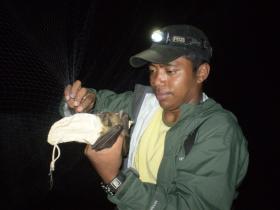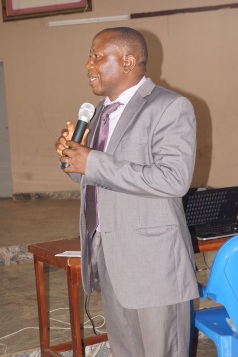By Dr Radosoa A. Andrianaivoarivelo – Kibale 2004

Two of the three bats of Madagascar are categorized as endangered according to the IUCN red list, but all of them are heavily threatened by habitat loss and severe hunting. In some areas of Madagascar, they are considered as a threat to fruits of economic importance such as the lychee (Litchi chinensis) and the Japanese persimmon (Diospyros kaki) and are therefore persecuted in the trees where they feed at night (Andrianaivoarivelo et al. 2007). For these reasons, I led a research project on the dietary behaviors of the fruit bats to investigate whether they prefer food from natural habitats over alien, economically Important fruit species or vice versa (Andrianaivoarivelo et al. 2012).










